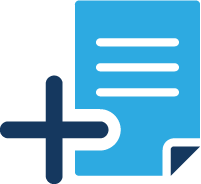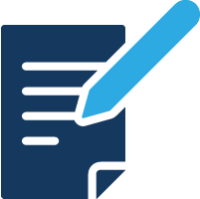
ResourcesFunding call for proposals
Local calls simplify the financing process for stakeholders implementing transformative and context-relevant projects that result in meaningful progress. Grants not only go towards new projects with funds also made available for the continuation of programmes or when scaling up successful initiatives.
The bottom line is to reach the most marginalized, embedding principles of equity, transparency and accountability, and unlocking alternative sources of public and private capital. All gains leveraged through multi-partner trust fund financing go towards making inroads for 2030 Agenda achievement.




Purpose of the ‘call’: Ramping up efficiency, accountability, and innovation
Most multi-partner trust fund secretariats issue calls for proposals, so interested partners (current or prospective) can pitch fund-related projects. Not only does this encourage ongoing stakeholder engagement, but it supports SDG gains across the humanitarian-development nexus.
Depending on the fund and context, international and local NGOs, civil society organizations, government institutions, and private sector outfits may be eligible to receive blended sources of financing that are used in the design and delivery of innovative and effective initiatives that contribute to sustainable, multi-level action.
The application process
Fund secretariats often welcome proposals from a range of interested stakeholders—with United Nations organizations and civil society partners being the biggest bidders and contenders. Depending on the fund, stakeholders are at liberty to submit various types of proposals. The Peacebuilding Fund Secretariat accepts proposals from three tiers of applicants (maximum three joint UN recipient agencies, UN and civil-society organizations, and civil society organizations as direct recipients). Other funds, meanwhile, finance collaborators through dedicated windows or issue-focused response grants.
In most cases, a successful proposal passes through two stages, the first comprising Q+A sessions, concept note design, online submission, and panel of experts review. Fund secretariats communicate results to all applicants within eight to twelve weeks following the close of a call.
In the second stage, successful applicants must submit full project proposals that go under review prior to the disbursement of funds. Local organizations, in particular, should apply for new funding opportunities.
For more information on specific calls, thematic areas of focus, eligibility, guidelines, terms and conditions, deadlines, and focal points, visit the fund webpage or contact the responsible secretariat for more details.
Ongoing and past calls for proposals |
|---|
Elsie Initiative Fund - Call for ProposalsProgramming Round 4 (2025–2026) - OPEN Background: The Elsie Initiative Fund (EIF) is a multi-donor global fund established in 2019 by the United Nations, Canada, and other Member States, and hosted by UN Women. It is designed to:
Since inception, EIF has funded or is funding 24 projects across 16 T/PCCs and 3 UN peacekeeping operations, targeting barriers such as:
The Fourth Programming Round of the EIF officially launched on 9 October 2025. The call for Letters of Interest (LOIs) is now open to eligible applicants. Submission Deadline: 31 January 2026 (for DPO Peacekeeping Missions – it is 10 January 2026) Eligibility Criteria Only the following may apply:
More information about the Call for Proposals can be found here: The Elsie Initiative Fund The Fund Secretariat is also conducting a series of capacity-building webinars throughout October to guide applicants — including the Technical Brief for T/PCCs and UN Peacekeeping Missions (14 October) and sessions on completing LOIs for each funding modality (MOWIP, FPF and GSU). Recordings in English, French, Spanish, and Arabic will be available on the same webpage. |
Women’s Peace and Humanitarian Fund (WPHF) - Call for Proposals in Syria - Closed
This Call for Proposals in Syria provides programmatic and institutional funding opportunities for local organizations in Syria to implement projects focusing on humanitarian and crisis response, the protection of women and girls, and peacebuilding and recovery, as well as supporting local women and young women’s rights organizations through institutional funding. WPHF seeks to fund qualifying local organizations in Syria through the following funding streams:
The application deadline is 20 October 2025. As usual, we would be grateful for your help in disseminating this call (available in Arabic) widely among your networks and reshare our social media promotions here. |
Women’s Peace and Humanitarian Fund (WPHF) - Call for Proposals in Sudan - Closed
This Call for Proposals in Sudan provides programmatic and institutional funding opportunities for local organizations in Sudan s to implement projects focusing on humanitarian and crisis response and the protection of women and girls, as well as supporting local women and young women’s rights organizations through institutional funding. WPHF seeks to fund qualifying local organizations in Sudan through the following funding streams:
The application deadline is 21 October 2025. As usual, we would be grateful for your help in disseminating this call (available in Arabic) widely among your networks and reshare our social media promotions here. |
Women’s Peace and Humanitarian Fund (WPHF) - Call for Proposals in Lebanon - Closed
This Call for Proposals in Lebanon provides programmatic and institutional funding opportunities for local organizations in Lebanon working on humanitarian and crisis response, the protection of women and girls, and peacebuilding and recovery, as well as supporting local women and young women’s rights organizations through institutional funding. This call will fund qualifying local civil society organizations in Lebanon through the following funding streams:
The application deadline is 31 October 2025. As usual, we would be grateful for your help in disseminating this call (available in Arabic) widely among your networks and reshare our social media promotions here. |
Ukraine Community Recovery Fund (UCRF) Call for Proposals
– Mine Action Window - Closed
The United Nations in Ukraine, with support from the Government of Canada, is launching the Third Call for Proposals under the Mine Action Window of the Ukraine Community Recovery Fund (UCRF). This call aims to support peace, public safety, and inclusive recovery efforts in areas affected by explosive ordnance.
Focus Areas:
- Scaling Non-Technical Survey (NTS) for land release – up to USD 3 million
- Enhancing the operational readiness of the Explosive Ordnance Disposal (EOD) force of the National Police of Ukraine – up to USD 5 million
- Quick Impact Response Fund (QIRRF) – up to USD 2 million
- Strengthening UN coherence through a dedicated Mine Action Unit – up to USD 1 million
Eligibility:
UN entities with relevant mandates and operational presence in Ukraine, with proven experience in mine action and recovery, are eligible to apply. Proposals must demonstrate consultation with regional and local authorities, civil society organisations, and alignment with national mine action priorities. Collaboration with other UN entities is encouraged under the One UN approach.
Deadline for submission:
15 June 2025, 23:59 Kyiv time
Submission method:
Proposals must be submitted in MS Word format to:
Proposal requirements:
Use the UCRF Project Document Template, including:
- Project narrative
- Budget in UNSDG format
- Results framework aligned with Fund indicators
Projects must be completed by 30 June 2027. For full details, including guidance and templates, refer to the official Call for Proposals documentation.
Women’s Peace and Humanitarian Fund (WPHF) - Call for Proposals in Haiti - Closed
The United Nations Women's Peace and Humanitarian Fund (WPHF) is pleased to share the launch of its latest Call for Proposals in Haiti. This call provides new funding opportunities for civil society organizations working to enhance the protection of women and girls, promote the participation and leadership of women in humanitarian crisis and response, and strengthening the socio-economic recovery and political decision-making in peacebuilding contexts. The call seeks to fund qualifying local organizations in Haiti through the following funding streams:
Application deadline is 20 January 2025. For more information, please head over to the dedicated page on the WPHF website. |
Nature4Health Expression of Interest - Closed
N4H promotes country-led, preventative policies and investments in nature that help to reduce health risks. The overall focus of N4H is to address the environmental determinants of health and to strengthen the integration of the environment in the One Health approach and thereby help secure the health of ecosystems, animals, plants and people. Interested governments are invited to apply for the expression of interest (EOI) for Phase II and be part of the Nature4Health movement!
Eligibility requirements
The application window will open on 10 January 2025 and the deadline is 24 March 2025. N4H have made files available for a preliminary overview on the process and to support proposal development. For more information and to access files, please head over to the N4H EOI page. |
Kunming Biodiversity Fund - ClosedThe Kunming Biodiversity Fund (KBF) is pleased to announce a call for proposals with the following thematic focus areas: 1. Restored and protected ecosystems to improve biodiversity and ecosystem services 2. Biodiversity effectively mainstreamed into policies, regulations, planning and strategies 3. Sustainable use of biodiversity enhanced. 4. Biodiversity mainstreamed among businesses and consumers to drive positive behaviours. 5. Benefits shared from genetic resources and digital sequence information on genetic resources Full guidelines and scope are available here. The Concept Note template can be downloaded here. The deadline for the Concept Note submission is 10 February 2025. The call for proposal is Closed.
|
Kunming Biodiversity Fund call for Expression of Interest for the Independent Technical Advisory Group (ITAG) - OpenThe Kunming Biodiversity Fund is announcing a call for expression of interest to join the The Independent Technical Advisory Group (ITAG). ITAG serves as an advisory body bringing independent, impartial expert knowledge and advice on biodiversity conservation and environmental governance to the Kunming Biodiversity Fund. Its main purpose is to provide technical advice on monitoring, implementation and knowledge management, science and best practice, and economics and finance for implementation of effective biodiversity action. The EC may also request advice on additional technical matters. The ITAG advises the EC and is coordinated by the Secretariat. Full roles and responsibilities of ITAG members are detailed in the ITAG Terms of Reference (ToR). The Expression of Interest template can be downloaded here. Application deadline is Sunday 16th March 2025. Please submit documents and questions to kbf@un.org. |
Malaysia-UN SDG Trust Fund announces call for proposals for high impact projects - Closed
The Malaysia-UN SDG Trust Fund announces the launch of its second Call for Proposals (CFP-2024/25), for a total amount up to USD 4 million (approximately MYR 17.2 million).
This initiative will provide grants ranging from USD 100,000 to USD 500,000 for projects that would contribute to accelerating Sustainable Development Goals (SDGs) progress in Malaysia with a focus on supporting groups and communities at risk of being left behind. |
Kunming Biodiversity Fund Call for Proposals - Closed
This Call for proposals has been designed to support the following Actions Areas:
|
For more information on eligibility criteria, how to apply, please see the project application template and Guidelines on the Kunming Biodiversity Fund Project Application Call for Proposals Deadline: 13 September 2024 Funding window
|
Central African Forest Initiative (CAFI) Call for Expressions of Interest for Regional Private Sector Facility - Open
Call for Expressions of Interest to all relevant implementing organisations interested in investing in private sector companies in our partner countries (the Democratic Republic of the Congo, the Republic of the Congo, the Gabonese Republic, the Republic of Cameroon, the Republic of Equatorial Guinea and the Central African Republic) to address the drivers of deforestation and forest degradation in the following sectors:
The CAFI private sector facility will make 100 million USD available to implementing organisations in the form of:
For more information and to learn how to apply, please follow this link to the CAFI website. |
Central African Forest Initiative (CAFI) - ClosedCAFI is expanding its innovative finance through a new call for expressions of interest to identify capital acceleration providers. The call aims to lead to developing new partnerships and new types of blended finance solutions, providing funding to private sector stakeholders to guide their investments and expertise towards CAFI’s goals.
The Call for EoI is open to non-profit organizations, including non-governmental (NGOs) and inter-governmental organizations (IGOs). Deadline: 4 August 2024 For more information and to access application forms, please follow this link to the CAFI website. |
IRAF 2nd Call for Proposals - ClosedRecognizing that the Antigua and Barbuda Agenda for SIDS is the most recent call for action from the SIDS, the 2nd Call for Proposals has been designed to support the priorities as defined in the document – namely to support initiatives related to ‘Climate Action, Mainstreaming Resilience and Strengthening Data for Resilient and Inclusive Infrastructure’. The projects to be supported through the IRIS 2nd Call will aim to equip relevant government agencies in SIDS with needed technical support and knowledge products for promoting resilient infrastructure, with the goal to foster resilient economies and a secure future for SIDS. The call for proposals is open to all 57 SIDS. Application deadline: 31 August 2024
|
Complex Risk Analytics Fund (CRAF'd) - ClosedThe Complex Risk Analytics Fund (CRAF'd) and its partners are excited to announce the launch of an Open Call for Proposals on gender data for better crisis anticipation, prevention, and response. Together with our partners, we believe in the power of data to highlight the challenges women and girls face in fragile and crisis-affected settings and to support impactful solutions. Submit your concept note by 4 August 2024 and join the CRAF'd crisis data ecosystem. A total of $3 million in funding is available. Apply hereAbout the open callThe international community allocates over $40 billion annually for emergency assistance action in fragile settings. As challenges escalate worldwide, data-driven approaches can unlock significant gains for people and the planet through earlier, faster, more targeted, and dignified crisis action. Yet, as the world faces escalating challenges, the unique needs of women, girls, and marginalized groups are often overlooked. That's why CRAF'd seeks initiatives that provide essential gender data that contributes to gender-transformative crisis action, including on:
|
